

ONOC.
Au revoir Paris. Hello L.A.
The Olympics have wrapped up and team Pacific returned home with a silver medal. PMN Sports Reporter Matt Manukuo looks at the good, the bad and the glitz of the Paris Games.




A.R.T sets new Pacific music pace with ‘First Thursday’ releases
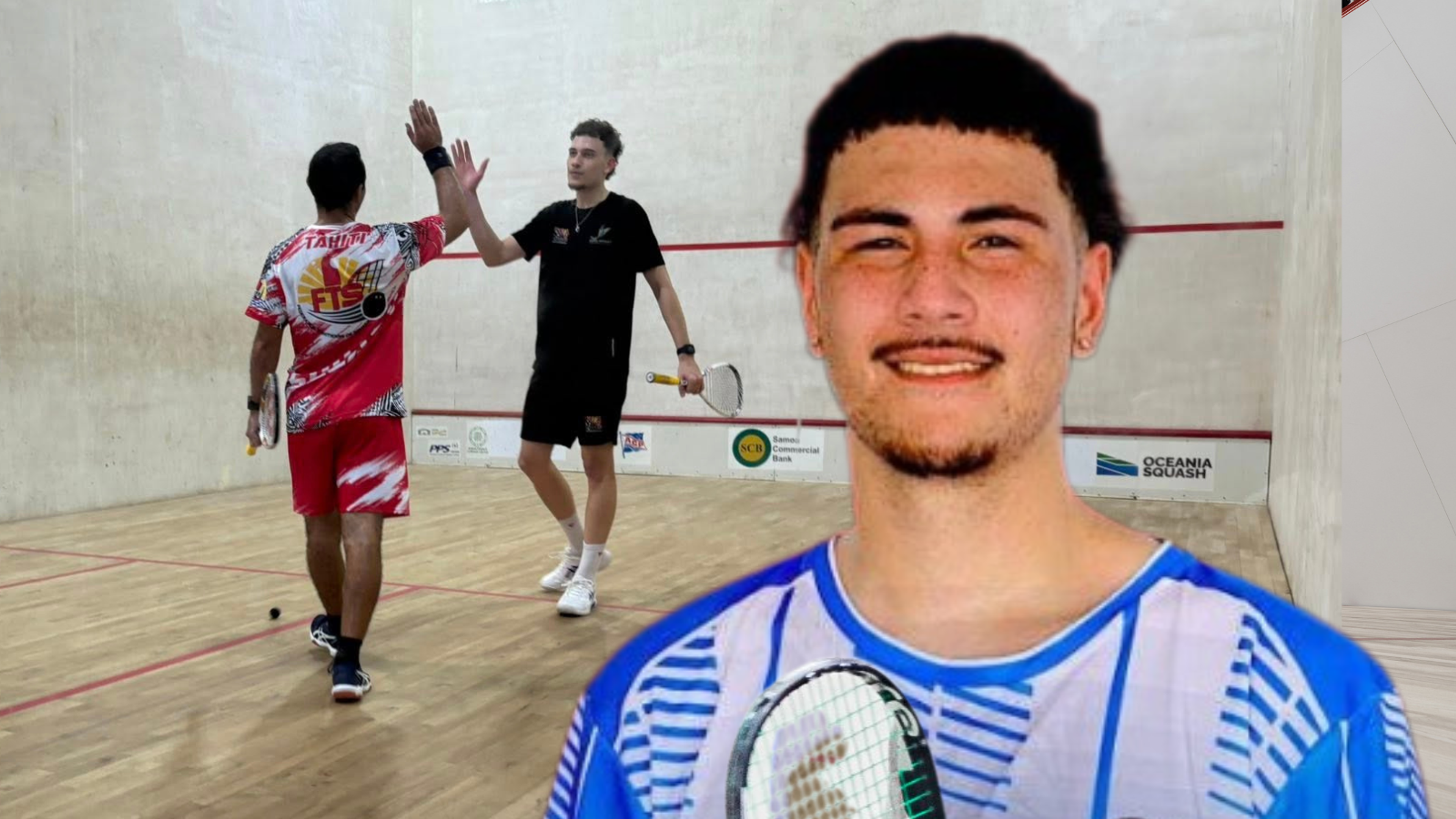


Moana Pasifika end Lautoka curse to win 'Battle of the Pacific'


A.R.T sets new Pacific music pace with ‘First Thursday’ releases

It was 16 days of official action (and an additional two of preliminaries before that) where more than 10,000 athletes from over 100 countries pitted their skills against each other to be the best in the world.
Paris did not disappoint. From the river parade and Celine Dion-led opening ceremony to the musical entertaining extravaganza at the closing ceremony which the athletes enjoyed from their unscheduled stage invasion.
Although one could say that the farewell to the Games was dominated by the Americans including Hollywood legend Tom Cruise’s dramatic stunt which has received mixed reactions. That is because the United States is hosting the next Olympics - 2028 in Los Angeles.
However, some were not amused one bit with the organisers’ apparent tableau which was misinterpreted as a satire of the Last Supper.
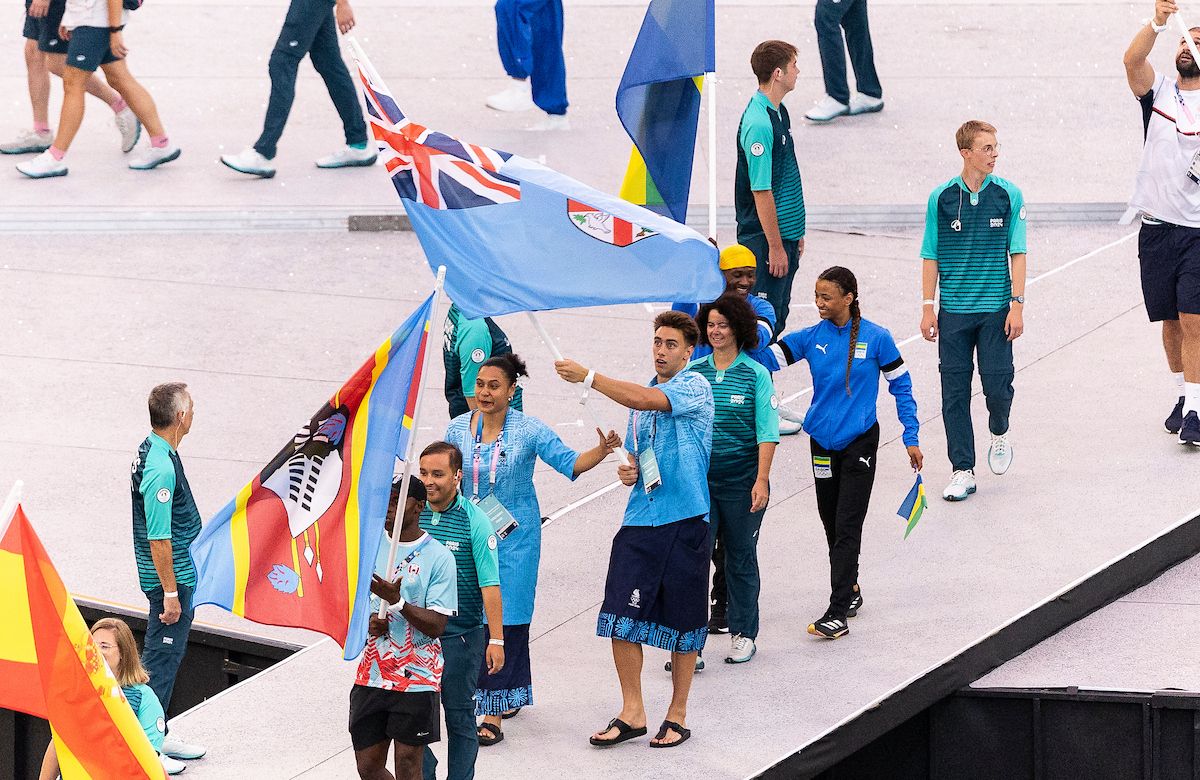
Fiji flagbearers Venice Traill and Tolu Young. Photo/ONOC
For everyone who witnessed Paris 2024, one thing’s for sure, all good things must come to an end. And that means for Team Pacific, the journey has finished for another Olympic Games.
Forty-four athletes, representing their island homes can return home proud after four weeks of intense competition, rivalry, and camaraderie in Paris, Oceania National Olympic Committee chief Inoke Bainimarama says.
Fiji, the third-largest country in the Pacific, won the lone medal for the region, thanks to their men’s rugby sevens heroes, despite being denied a triple-crown history by the hosts.
Bainimarama told PMN Olympics correspondent James Nokise that Team Pacific did a “great job”.
“When it comes to the athletes, they’ve got their targets but they also want to do their best.
“While our objective is a podium finish, we also track their PBs, their best performance, or even a national record.
“I would say from a personal observation, the athletes have done well.”
Team Pacific’s biggest moments
Nine island nations were represented in Paris, with the hopes and dreams of a podium finish.
But for Team Pacific, their campaign was rocked early with the tragic news of Samoa’s boxing coach passing away in the Olympic Village.
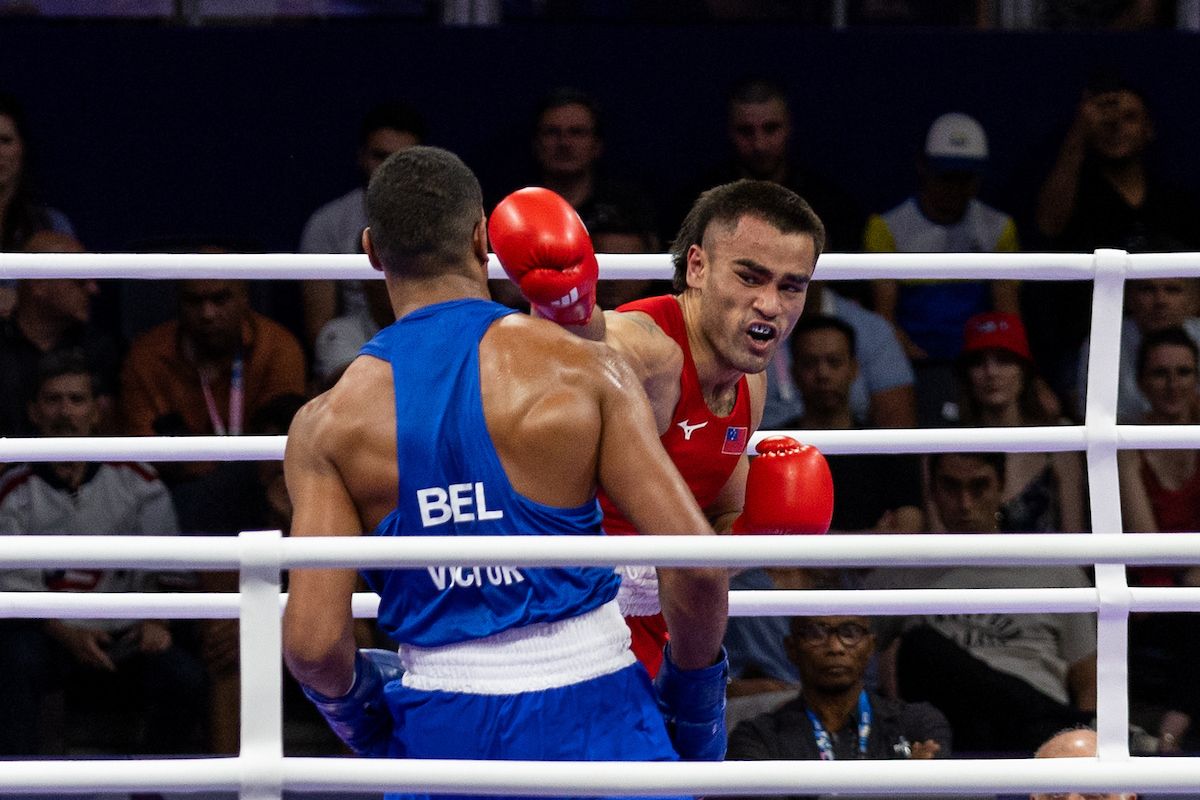
Ato Plodzicki-Faoagali in his bout at the games. Photo/ONOC
Sāmoa’s Commonwealth and Pacific Games champion Ato Plodzicki-Faoagali was stopped in his pursuit of gold in the first round of 16.
The young Sāmoan hopeful fought 48 hours after the tragic passing of his head coach. Despite losing, he returned home in good spirits, determined to continue his success in the sport.
The track-and-field competition was shaken up as Solomon Islander Sharon Firisua lined up for the women’s 100m sprint.
The 30-year-old marathon runner was thrown into the race as an IOC wildcard, and finished in last place.
The Solomon Islands Olympic Committee denied any “oversight or preference” for Firisua’s participation, which caused some controversy.
For Tonga, 30 years after their debut at an Olympics, Feo’ofa’aki Epenisa became the first-ever female boxer to compete at the Games.
Despite losing her bout to a Vietnamese opponent, the United States-based Epenisa said she was proud to represent her country and test her might against the world's most elite boxers.
A young i-Kiribati runner was the youngest athlete to compete in the track and field events. Kanez Kaniwete sprinted in the men’s 100m, where he completed a personal best time of 11.35 seconds.
Over on the sunny beaches of Tahiti, local hero Kauli Vaast struck gold for France in the men’s surfing competition in the small village of Teahupo’o.
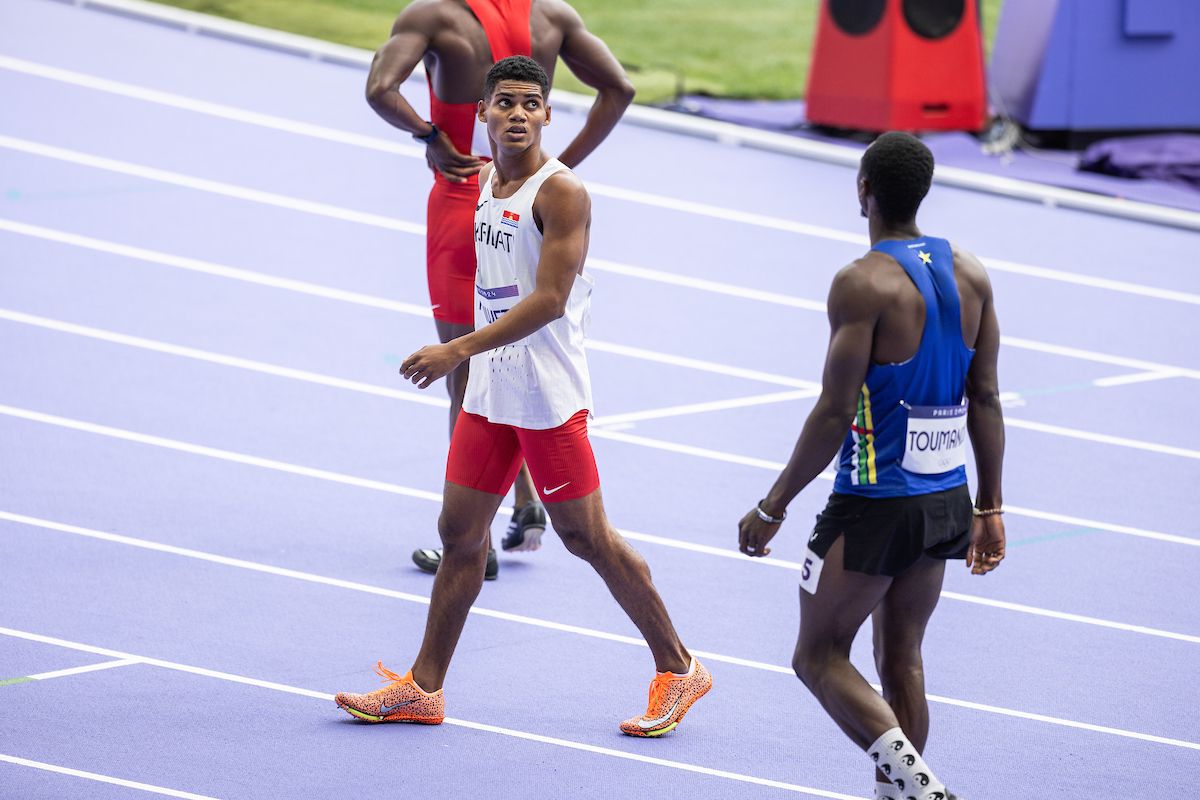
Kanez Kaniwete after his heat. Photo/ONOC
Known for its monstrous wave, Vaast took on the field, competing against Australian Jack Robinson in the final, and securing a near-perfect score of 9.5 to win the gold.
Papua New Guinea’s Josh Tarere splashed his way in the men’s 100m freestyle, winning his heat in his Olympic debut. Tarere clocked a personal best of 53.85secs.
Despite the win, Tarere did not advance to the round of 16 swimmers, but he can hold his head high completing a PB.
Cook Islander Lanihei Connolly also recorded a PB in the Women’s 100m freestyle.
The 19-year-old Olympic first-timer made a big splash in her debut, finishing the women's 100m breaststroke event with a PB of 1:10.45secs.
Despite only taking home one medal, the Olympics was a time for emerging Pacific athletes to compete against their records.
And in doing so, they are developing their talent for Los Angeles in 2028 and even Brisbane in 2032.
What next for Team Pacific?
Athletes from the Blue Continent will be looking to build towards the 2028 LA Games.
Listen to the full interview with Inoke Bainimarama below.
For Oceania’s Olympic governing body, their sights are set further to 2032 when our athletes will compete across the ditch.
“We activated ten years ago, and we launched our road map to 2032. It’s broken into two parts: a high-performance side, and a legacy side,” Bainimarama said.
“Our roadmap specifically looks at high performance and legacy. On the high-performance end, we are now encouraging and working with our NOCs and international federations.
“Though we are not involved with selecting the athletes, we are beginning to put together the platform to start to track, tag, and put athletes into the system so they are peaking in 2028 and outperforming in 2032.”
In setting their sights on Brisbane in 2032, Bainimarama said they had met with key stakeholders and developers in Brisbane who could help support the athletes in their development.
“We met stakeholders and brought together like minds and possible stakeholders on the ground like Universities, high-performance centres, and sports institutes in partnership with the Australian Olympic Committee.”
Bainimarama said when the bid to host the 2032 games was made, the Oceania region was already on everyone’s minds.
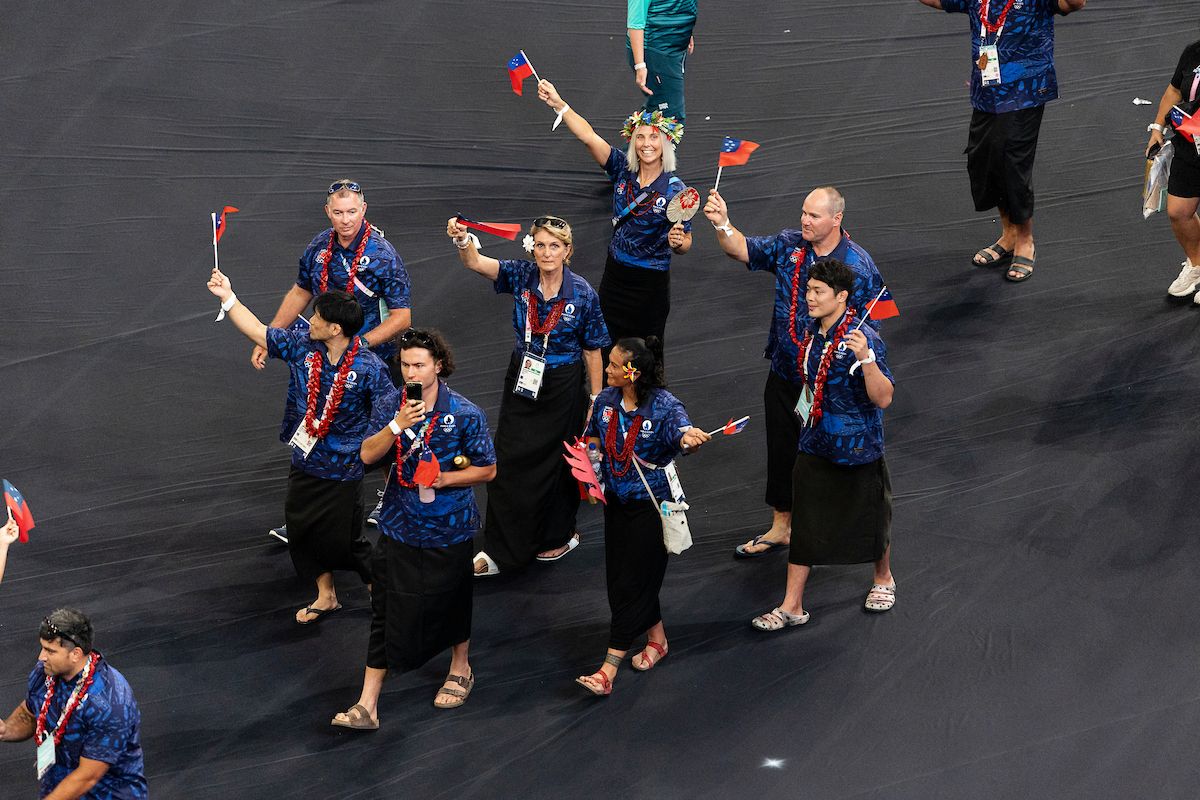
Members of Team Samoa during the closing ceremony. Photo/ONOC
He said ONOC has capitalised on that factor to help the development of Pacific nations.
In doing so, he said ONOC’s working with universities in Australia to bring Pacific athletes to study and undergo high-performance programmes.
As for the Pacific’s Olympic legacy, Bainimarama wants to organise special visas for athletes’ families to travel with them.
He said ahead of the 2028 and 2032 Olympics, ONOC was aware of the regional competitions as another stepping stone for athletes.
“What happens now? We are in our targets and 2028 will be very important. We’ve got the 2025 mini-games in Palau, the 2027 Pacific Games in Tahiti, the 2028 Olympic Games, (and) the Commonwealth Games,” Bainimarama said.
“All these games we use for high-performance pathways and we start to align so that Brisbane is the ultimatum.”
Glasgow, Scotland, is set to get the nod after reportedly reaching an agreement to host the 2026 Commonwealth Games. Victoria, Australia, pulled out last year due to rising costs.
The Canadian province of Alberta also withdrew its bid for the 2030 Commonwealth Games.